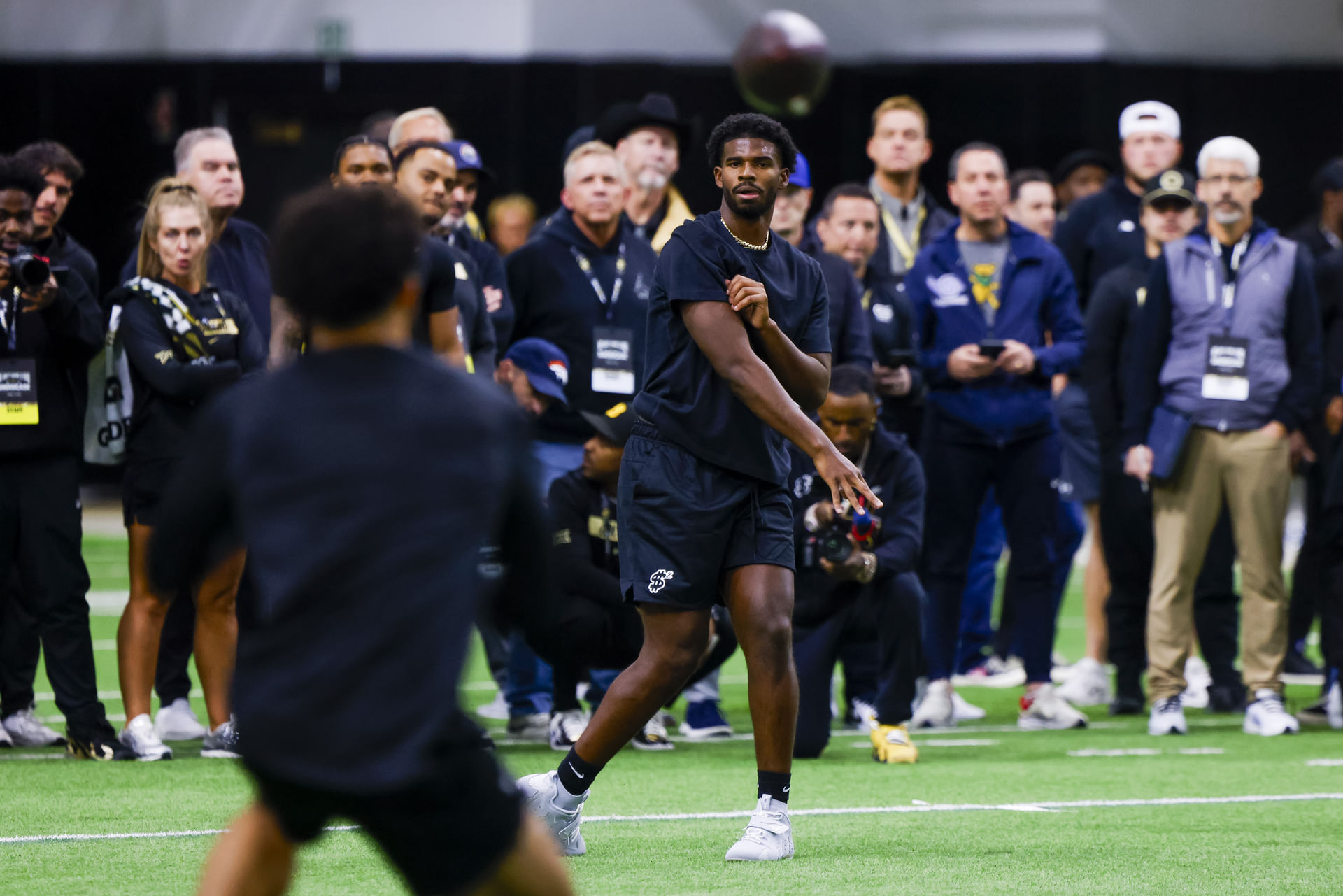ESPN analyst Aaron Schatz identified mobility as the decisive factor that places Miami quarterback Cam Ward ahead of Colorado’s Shedeur Sanders. His assessment comes in the context of the 2025 NFL Draft quarterback rankings, despite Sanders’ superior accuracy numbers.
In his ESPN article on Sunday, Schatz explains why Ward ranks higher than Sanders despite some statistical disadvantages.
“Sanders was more accurate than Ward, but his minus-0.5 rushing yards per attempt in 2024 (minus-0.6 in his career) worked against his superior accuracy,” Schatz said.
•
![]()
“If Sanders’ projected draft position were the same as Ward’s, their QBASE projections would be closer. But it’s important to note that in the most recent classes (from 2018 to the present), mobile quarterbacks like Ward have performed better in the NFL.”
Looking to predict NFL playoff Scenarios? Try our NFL Playoff Predictor for real-time simulations and stay ahead of the game!

The numbers support this assessment. Ward posted 3.4 rushing yards per attempt in 2024, outpacing Sanders’ negative rushing production. Sanders set the career FBS completion percentage at 71.8% and completed an FBS-leading 74% of his passes in 2024.
Will Ward’s mobility advantage tip the scales against Shedeur Sanders

Another key issue facing Shedeur Sanders is his pocket tendencies. According to an April 9, 2025, ESPN article, Sanders’ average time to throw last season was 2.96 seconds. This ranks him 110th in FBS and well above the national average of 2.76 seconds.
Ward also holds the ball longer than ideal at 2.91 seconds (100th in FBS), but scouts have particularly flagged Sanders’ habit of extending plays. One scout who covered the Big 12 noted the following for Sanders:
“Holding it was his default. When he lets it go, it’s accurate, in frame, in the right spot. But his clock has to be different in the league, or it’s way too many negative plays.”
This tendency has had real consequences. Sanders was sacked 94 times over the past two seasons, more than any other FBS quarterback. While Colorado’s offensive line shoulders some blame, Sanders’ decision-making also contributed to these negative plays.
NFL coaches emphasize the impact of these tendencies. Denver Broncos coach Sean Payton explained the ripple effects. He said:
“You can analytically assign points per drive. Then you can analytically say, ‘What do my points per drive look like after a sack?’ Obviously, those numbers drop. It goes against trying to stay on schedule.”
The comparative QBASE projections tell the story. Ward received a mean projection of 0.35 Total defense-adjusted yards above replacement per attempt (TDYAR/A), with a 16.1% chance of reaching elite status. Shedeur Sanders scored lower at 0.19 TDYAR/A with only a 12.6% chance of reaching elite performance levels.
Ward’s mobility advantage appears to be tipping the scales in his favor.
Edited by Krutik Jain

